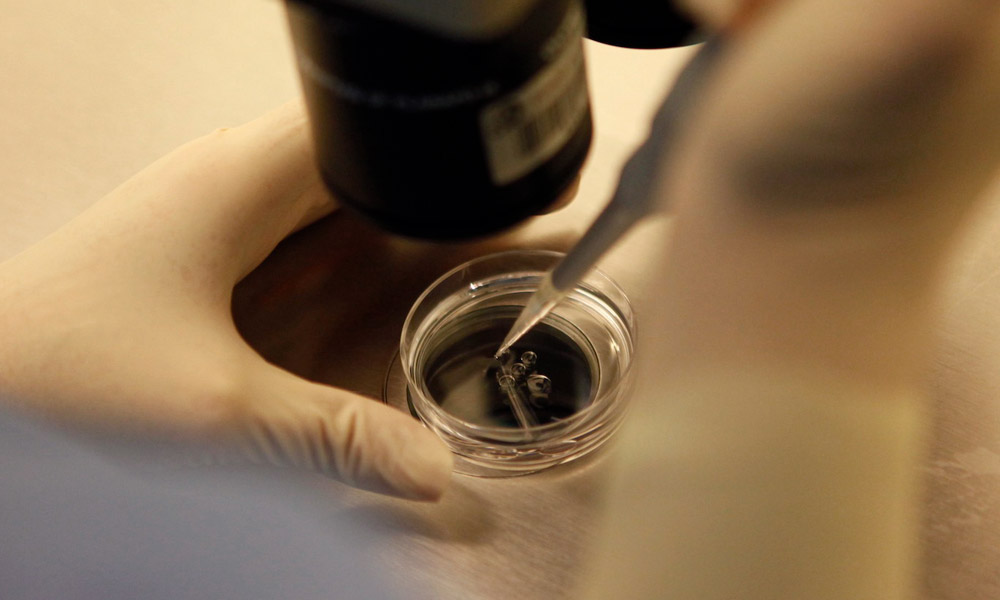
A new multicentre study led by Dr Nikolaos Polyzos, Head in the Dexeus Mujer Reproduction Service, has studied whether there could be any association between different genetic variants in the FSHR sequence and the outcomes of reproductive treatments in patients with infertility problems.
The work was conducted between November 2016 and June 2019 in Spain, Belgium and Vietnam and included 351 patients aged <years and undergoing IVF with a predicted normal response with fixed dose of 150 IU of FSHR in an antagonist protocol. Genotyping was performed for three FSHR sequence variants (c.919A>G, c.2039A>G, c.-29G>A) and one FSHB (c.-211G>T). Clinical pregnancy rate (CPR), live birth rate (LBR) and miscarriage rate at first embryo transfer, as well as cumulative live birth rate (CLBR) were compared between genotypes.
The results evidence a previously unreported association between the c.919A>G variant genotype GG and higher CPR and CLBR in infertile patients and reinforce a potential role of genetic background in predicting reproductive prognosis after IVF.
Reference article:
Association between sequence variants in the FSHR gene and reproductive outcomes following IVF in predicted normoresponders
Ana Raquel Neves, Sandra Garcia, Lan Tn Vuong, Christophe Blockeel, Gemma Arroyo, Claudia Spits, Toan D Pham, Tuong M Ho, Herman Tournaye, Nikolaos P Polyzos.
Reprod Biomed Online . 2023 May;46(5):826-834. doi: 10.1016/j.rbmo.2023.01.013.